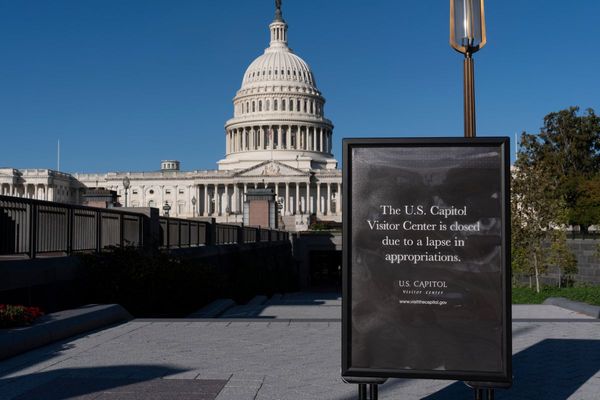
On Wednesday 1 February, family and friends of Tyre Nichols, along with Vice-President Kamala Harris and other representatives from the White House, gathered at the Mississippi Boulevard Christian church in Memphis, Tennessee to grieve the brutal murder of a young Black man. Such public grief on the first day of Black History Month echoes the moans of millions of Black Americans who have mourned the incomprehensible violence of the Middle Passage and auction blocks, slave patrols and lynch mobs, Klan assaults and police beatings. God only knows the name of every person who has been brutalized by the racial caste system that America’s plantation economy created.
But in this moment we must mourn and cry another pain. The men who killed Tyre Nichols were Black, as he was. This is not a case of individual racists, but another example of a policing system rabid with brutality and death. This kind of death is not new, and a true remembering of Black history must address this too. This most recent atrocity that the world witnessed in the video from Memphis is a symptom of a deeper social sickness that must be confronted before we as a nation can be whole.
To remember Black history is to also recall how Black overseers were recruited to maintain order on America’s plantations. When an enslaved person defied the slaveholder’s orders, it was often another Black person who was tasked with strapping the defiant bondsman to a whipping post and brutalizing him in front of other enslaved people. During the civil rights movements, Black and white activists reported terrible beatings in southern jails at the hands of Black men – sometimes fellow inmates – who did the bidding of local sheriffs. The hierarchy of racial terror has never been only enforced by white people. Nor has it only harmed Black people.
From Black and white abolitionists to Black, white, brown and Native civil rights workers, anyone who has directly challenged America’s racial hierarchy has been subject to brutality. But moral fusion movements have also been clear that our goal is to transform systems that devalue the lives of all poor and marginalized people.
Over the past decade, the Black Lives Matter movement has done important work to raise consciousness about the way that non-white people disproportionately suffer from police brutality. But this brutality can also be directed at white people. Just last year a white officer in Concord, North Carolina, shot and killed a poor white man, then lied about what had happened until the body-camera footage of the incident was released. When law enforcement is tasked with defending an order in which inequality is normal, brutality is what poor people come to expect from their interactions with the law.
This is why moral fusion movements that have challenged America’s system of racial hierarchy have never been made up of Black people only. It is also why these movements have not directed their challenge solely at the enforcers of an unjust system.
To focus only on “police reform” in our present crisis would be akin to working for an end of the whipping post during slavery. Abolitionists did not simply demand better treatment of enslaved people. They insisted that slavery was wrong. Likewise, the civil rights movement did not simply protest the brutal enforcement of Jim Crow segregation. They insisted that segregation was wrong because it dehumanized Black people and propped up an economic system in which poor white people were offered the “psychological wages” of whiteness while they continued to struggle to feed their families.
The public lynching of Tyre Nichols is a harsh reminder that we live in an America where some people’s lives are considered expendable. The officers who murdered this man did not act alone. Who else killed Tyre? Every politician who has been silent of the issues of violent public policy that denies some Americans basic human rights like housing, healthcare and a living wage. Also, every preacher and moral leader who remains quiet and doesn’t challenge the value gap in our society until another fatality is caught on camera. Who else bears responsibility for this brutality? Every American who has refused to believe on-the-ground activists who are crying for justice, and every politician who forfeited the chance to say: “No others bills in Congress until we have police reform, voting rights, living wages and universal healthcare.”
Yes, the officers who brutalized Tyre must be held accountable for their actions. Far too often, officers who abuse their power and the public trust face no consequences in cases like these. But we must also acknowledge that their brutality is a byproduct of too many Americans passing the buck and abdicating responsibility for a society where 700 people die every day, not because God has called them home but simply because they are poor.
Fifty-five years ago, Dr King went to Memphis because two Black garbage workers had been killed on the job by faulty equipment. He wasn’t there simply because the workers were Black, nor was he there only to demand repair of the equipment that had killed them. King, who was in the midst of organizing the Poor People’s Campaign, was in Memphis because working people were standing together to demand dignity under the slogan “I Am A Man”. Until Black, white, Native and brown people unite to insist that our present economic reality is wrong and can be changed by policies that lift from the bottom so everyone rises, we cannot truly say that we have learned the lessons of our history or honored the life of one more soul who has died at the hands of law enforcement.
The Rev William Barber is president of Repairers of the Breach and founding director of the Center for Public Theology and Public Policy at Yale University
Jonathan Wilson-Hartgrove is assistant director of the Center for Public Theology and Public Policy at Yale University







